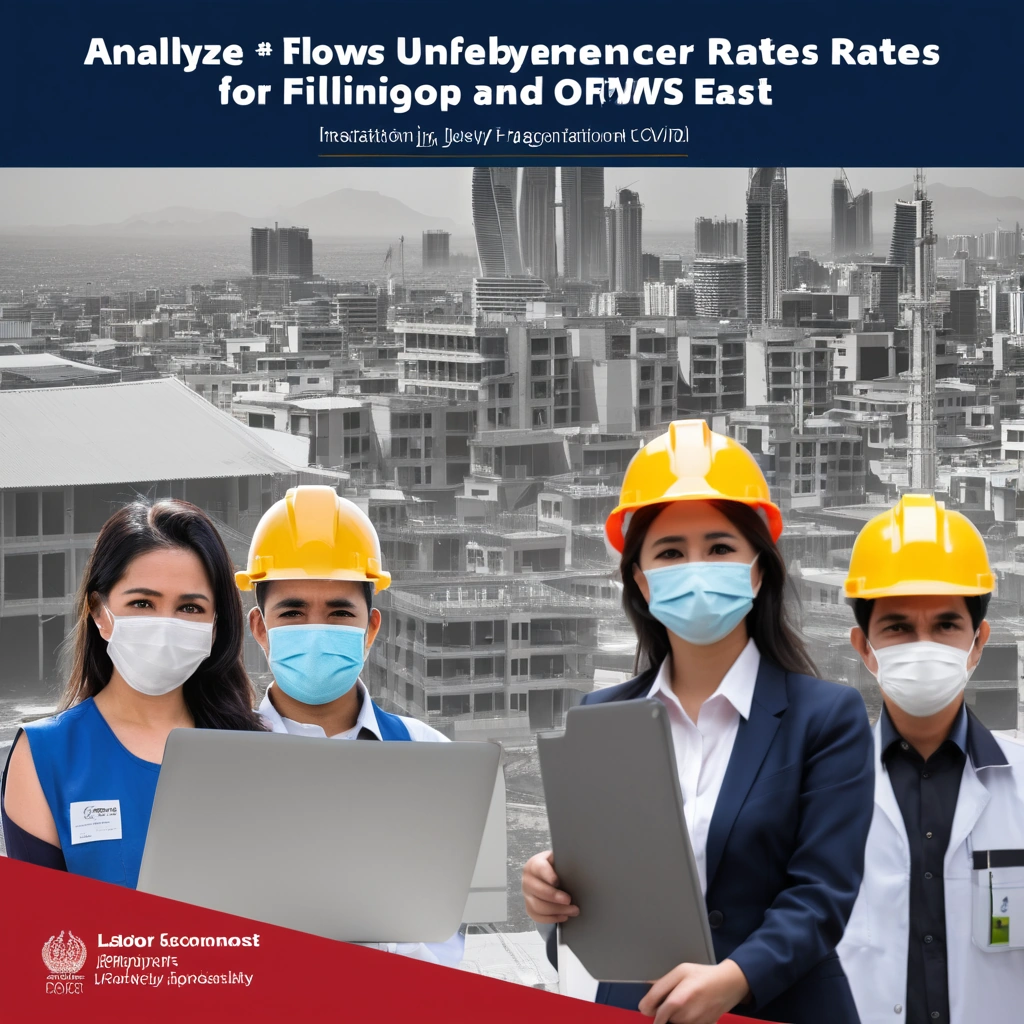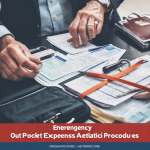OFWs in the Middle East: Navigating Post-COVID Realities and Economic Shifts
Navigating Shifting Sands: The Evolving Landscape for Filipino OFWs in the Middle East
The COVID-19 pandemic served as a watershed moment, profoundly altering the landscape for Filipino Overseas Workers (OFWs) in the Middle East. The region, while still a significant destination for Filipino labor, now presents a more complex tableau of opportunities and challenges shaped by global economic shifts and regional initiatives like Saudi Vision 2030. This ambitious diversification plan, while promising new avenues in sectors beyond oil, also necessitates a careful re-evaluation of traditional OFW employment strongholds, particularly in construction.
The pandemic exposed vulnerabilities in existing labor structures, prompting renewed scrutiny of ethical recruitment practices and the enforcement of fair wages and improved working conditions for Filipino Overseas Workers. Geopolitical instability further complicates the employment landscape. Fluctuations in oil prices, regional conflicts, and evolving diplomatic relations directly impact labor economics in the Middle East, creating uncertainty for OFWs. For example, shifts in political alliances can lead to preferential treatment for workers from specific countries, potentially marginalizing Filipino labor.
Furthermore, economic downturns triggered by geopolitical events often result in project delays or cancellations, disproportionately affecting OFWs in sectors like construction. Understanding these geopolitical nuances is crucial for both OFWs and the Philippine government in formulating effective strategies for sustainable employment. Beyond employment, the financial well-being of OFWs is paramount. The pandemic underscored the importance of financial literacy and prudent money management. While remittances from OFWs in the Middle East remain a vital lifeline for the Philippine economy, individual OFWs must be equipped with the tools to save, invest, and plan for their future.
Government support programs, in conjunction with initiatives from organizations like TESDA, should prioritize financial education tailored to the unique challenges faced by Filipino Overseas Workers. Moreover, access to affordable and reliable remittance channels is essential to maximize the economic impact of their earnings. The Philippine government, through the Department of Migrant Workers and its various agencies, plays a critical role in safeguarding OFW rights and promoting sustainable employment. Strengthening bilateral labor agreements with Middle Eastern countries is essential to ensure fair treatment, protect against exploitation, and provide access to legal recourse in cases of abuse. Furthermore, proactive measures such as pre-departure training, skills development programs, and robust monitoring of recruitment agencies are crucial to mitigate risks and empower OFWs. The POEA’s role in regulating ethical recruitment practices and blacklisting abusive employers is vital, but continued vigilance and enforcement are necessary to address the persistent challenges faced by Filipino Overseas Workers in the Middle East.
Construction Crossroads: Balancing Ambition and Reality
The construction sector, traditionally a major employer of OFWs, has experienced fluctuating demand. Saudi Vision 2030, with its ambitious infrastructure projects, initially promised a surge in construction jobs. However, project delays, funding constraints, and a push for local employment have tempered expectations. Data from the Philippine Overseas Employment Administration (POEA) indicates a slight decrease in construction worker deployments to Saudi Arabia in 2022-2023 compared to pre-pandemic levels. In contrast, Qatar’s preparations for the 2022 FIFA World Cup temporarily boosted construction employment, but this demand has since subsided.
Labor economists like Dr. Raul Fabella emphasize that OFWs need to diversify their skills to remain competitive in a changing market. “The construction sector is becoming increasingly automated,” Dr. Fabella notes. “OFWs need to acquire skills in areas like BIM (Building Information Modeling) and sustainable construction to secure long-term employment.” Beyond the headline figures, a nuanced understanding of the geopolitical impacts on OFW employment reveals a complex interplay of factors. For example, shifts in regional alliances and infrastructure investment priorities directly affect project viability and, consequently, the demand for Filipino Overseas Workers.
Furthermore, the increasing emphasis on ‘Saudization’ and similar nationalization policies across the Middle East necessitates a proactive approach from both the Philippine government and individual OFWs. Bilateral Labor Agreements must evolve to address these changing dynamics, ensuring fair wages and working conditions while also facilitating skills upgrading initiatives. The Department of Migrant Workers (DMW) plays a crucial role in negotiating these agreements and advocating for the rights of Filipino Overseas Workers. To navigate this evolving landscape, Filipino Overseas Workers must prioritize financial management and skills development.
Remittances remain a vital source of income for many families in the Philippines, but relying solely on construction jobs is no longer a sustainable strategy. Government Support Programs, such as those offered by TESDA (Technical Education and Skills Development Authority), can help OFWs acquire new skills in demand, such as renewable energy installation, advanced machinery operation, and project management. Investing in these skills not only enhances employability but also opens doors to higher-paying positions and greater financial security.
Ethical Recruitment practices are also paramount, ensuring that OFWs are not burdened with excessive placement fees or exposed to exploitative working conditions. Transparency and due diligence are essential when selecting recruitment agencies. Looking ahead, the construction sector in the Middle East will likely continue to evolve, driven by technological advancements and changing economic priorities. For OFWs to thrive, a multi-pronged approach is necessary. This includes continuous skills upgrading, proactive engagement with government support programs, and a keen awareness of geopolitical and economic trends. The Philippine government, through the DMW and other relevant agencies, must strengthen its efforts to protect OFW rights, promote ethical recruitment, and facilitate access to training and financial resources. By embracing adaptability and prioritizing lifelong learning, Filipino Overseas Workers can navigate the challenges and capitalize on the opportunities that the Middle East continues to offer.
Healthcare’s Steady Hand: Enduring Demand Amidst Challenges
The healthcare sector in the Middle East presents a nuanced landscape for Filipino Overseas Workers (OFWs). While demand for Filipino nurses and other medical professionals remains robust, fueled by expanding healthcare infrastructure and persistent shortages, several factors are reshaping the opportunities available. Saudi Vision 2030, for example, includes significant investments in healthcare, creating potential avenues for OFW employment. However, this is coupled with a parallel drive to nationalize the workforce, potentially impacting long-term prospects. Furthermore, geopolitical factors, such as regional conflicts and political instability, can influence healthcare priorities and resource allocation, indirectly affecting OFW employment stability.
Therefore, Filipino Overseas Workers must prioritize continuous professional development and acquire specialized skills to maintain their competitive edge. Stricter licensing requirements and growing competition from healthcare professionals from other countries are also intensifying the pressure on Filipino Overseas Workers. Many Middle Eastern countries are raising the bar for qualifications, demanding advanced certifications and specialized training. This necessitates that Filipino nurses and medical technicians invest in upskilling programs offered by institutions like TESDA to meet these evolving standards.
Moreover, the rise of healthcare industries in countries like India and the Philippines themselves means that Filipino Overseas Workers must demonstrate exceptional competence and adaptability to remain attractive to Middle Eastern employers. Financial planning for these educational investments is crucial, highlighting the need for financial literacy programs tailored for OFWs. The COVID-19 pandemic exposed vulnerabilities within the healthcare systems of many Middle Eastern nations, impacting Filipino Overseas Workers significantly. Many Filipino Overseas Workers faced immense pressure, working extended hours with inadequate protective equipment and limited access to mental health support.
This experience underscored the critical need for robust Bilateral Labor Agreements that safeguard the rights and well-being of Filipino Overseas Workers, ensuring fair wages, safe working conditions, and comprehensive healthcare coverage. Policy analysis, such as that conducted by Ms. Maria Alonte, emphasizes the importance of including provisions for mental health services and adequate rest periods in these agreements. The Department of Migrant Workers plays a crucial role in advocating for these protections and ensuring ethical recruitment practices are followed, preventing exploitation and abuse. Ultimately, the resilience and adaptability of Filipino Overseas Workers in the healthcare sector will depend on a combination of individual initiative, government support, and international cooperation.
Domestic Dilemmas: Vulnerability and the Quest for Protection
The domestic work sector remains a crucial entry point for many OFWs seeking employment in the Middle East, yet it is fraught with challenges that demand urgent attention. Despite ongoing efforts to promote ethical recruitment and improve working conditions, Filipino Overseas Workers in this sector remain disproportionately vulnerable to exploitation and abuse. Reports persist of withheld wages, excessive working hours that violate international labor standards, and instances of physical and emotional mistreatment. Kuwait, Saudi Arabia, and the UAE continue to be primary destinations, necessitating a deeper understanding of the localized challenges within each country.
The demand for domestic workers is often fueled by cultural norms and economic factors within these nations, creating a complex interplay of supply and demand that can disadvantage OFWs. While the Philippine government, through the POEA and now the Department of Migrant Workers, has implemented stricter accreditation processes for recruitment agencies and increased the deployment of labor attachés to monitor OFW welfare, these measures often fall short. Advocacy groups, like Migrante International, rightly argue that comprehensive solutions require stronger enforcement of existing labor laws in host countries, coupled with increased access to legal assistance and robust consular support for abused OFWs.
Bilateral Labor Agreements are critical, but their effectiveness hinges on rigorous monitoring and enforcement mechanisms that prioritize the well-being of Filipino Overseas Workers. Geopolitical factors also play a role; diplomatic relations and political stability can influence the willingness of host countries to uphold labor standards and protect OFW rights. A proactive, rather than reactive, approach is essential. TESDA’s role in providing pre-departure training and certification for domestic workers is undeniably important, but its impact is limited without complementary reforms in host countries.
TESDA’s programs aim to equip OFWs with the skills and knowledge to perform their duties effectively and, crucially, to understand their rights and how to seek help when needed. However, the effectiveness of this training is undermined if host countries do not recognize or respect these certifications, or if legal recourse is unavailable to OFWs who experience abuse. Financial literacy training is also crucial. OFWs need to understand how to manage their earnings, remit money home efficiently, and avoid predatory lending practices. Moreover, government support programs should extend beyond pre-departure training to include financial counseling and reintegration assistance upon their return. The long-term goal should be to empower OFWs to transition from vulnerable employment to more secure and sustainable livelihood options, leveraging their remittances for economic development back in the Philippines.
Remittance Resilience: A Lifeline for the Philippine Economy
Remittance flows from Filipino Overseas Workers (OFWs) in the Middle East represent a crucial pillar of the Philippine economy, demonstrating remarkable resilience amidst global uncertainties. While the COVID-19 pandemic initially caused a slight dip, remittances have since rebounded, fueled by the sustained deployment of OFWs and the increasing adoption of digital remittance platforms. This recovery underscores the enduring importance of OFW earnings in supporting families back home and contributing to the nation’s economic stability. The Bangko Sentral ng Pilipinas (BSP) reports that personal remittances consistently account for approximately 10% of the Philippines’ GDP, highlighting their macroeconomic significance.
However, the cost of sending money home continues to be a significant concern for OFWs. High transaction fees levied by banks and money transfer companies can substantially erode the value of remittances, diminishing the financial support available to families. The BSP is actively promoting greater competition within the remittance market and encouraging the adoption of lower-cost alternatives, including digital wallets and fintech solutions. Furthermore, the rise of AI-powered remittance systems offers promising avenues for reducing transaction costs and improving the efficiency of money transfers, potentially maximizing the value received by beneficiaries.
This is particularly relevant in light of geopolitical factors that can impact currency exchange rates and remittance flows. To further enhance remittance flows, the Philippine government, through the Department of Migrant Workers, is exploring partnerships with financial institutions and technology providers to develop tailored financial products and services for OFWs. These initiatives aim to promote financial literacy among OFWs, encouraging them to make informed decisions about remittance options and investment opportunities. TESDA could also play a role in training OFWs on utilizing digital financial tools. Moreover, bilateral labor agreements should incorporate provisions that ensure fair wages and transparent remittance processes, safeguarding the financial interests of Filipino Overseas Workers and their families. Ethical recruitment practices also contribute indirectly, ensuring OFWs are not burdened by excessive debt that reduces their remittance capacity. These efforts are crucial for ensuring that remittances continue to serve as a powerful engine for economic growth and social development in the Philippines.
Government’s Balancing Act: Policies, Protection, and Persistent Challenges
The Philippine government has implemented various policies to protect OFW rights and promote sustainable employment. These include the deployment of labor attachés, the accreditation of recruitment agencies, and the provision of pre-departure training. However, challenges remain in ensuring effective enforcement of labor laws in host countries and providing adequate support to distressed OFWs. Bilateral labor agreements are crucial in setting minimum standards for OFW employment and ensuring access to legal assistance and repatriation services. The Department of Migrant Workers (DMW), created in 2021, aims to streamline government services for OFWs and enhance coordination among various agencies.
However, its effectiveness will depend on its ability to address systemic issues such as illegal recruitment and exploitation. Beyond reactive measures, the Philippine government is increasingly focused on proactive strategies to enhance the competitiveness of Filipino Overseas Workers (OFW) in the Middle East labor market. Recognizing the impact of initiatives like Saudi Vision 2030, TESDA, in collaboration with the DMW, has launched skills upgrading programs tailored to emerging sectors beyond traditional construction roles. These programs aim to equip OFWs with expertise in areas such as renewable energy, advanced manufacturing, and digital technologies, aligning their skill sets with the evolving demands of the region’s diversifying economies.
This strategic investment in human capital is crucial not only for securing better OFW Employment Opportunities but also for maximizing the long-term contribution of remittances to the Philippine economy. The geopolitical landscape significantly impacts OFW employment, necessitating a nuanced policy approach. Fluctuations in oil prices, regional conflicts, and shifts in diplomatic relations directly affect labor demand and working conditions. For instance, heightened tensions can lead to project delays in the construction sector, impacting Filipino Overseas Workers employed in infrastructure development.
The government must therefore continuously assess these risks and adapt its strategies accordingly. This includes strengthening Bilateral Labor Agreements with Middle Eastern countries to include provisions for worker protection during times of crisis and establishing contingency plans for mass repatriation if necessary. Furthermore, rigorous monitoring of Ethical Recruitment practices is paramount to prevent exploitation of vulnerable OFWs seeking employment amidst geopolitical uncertainty. Financial literacy programs are another critical component of the government’s support for OFWs, recognizing that effective Remittances management is crucial for long-term financial security.
Many Filipino Overseas Workers, particularly those in the Domestic Work sector, lack the knowledge and tools to manage their earnings effectively, making them susceptible to financial scams and poor investment decisions. The DMW, in partnership with financial institutions, offers pre-departure and on-site training programs covering topics such as budgeting, saving, investing, and debt management. These initiatives aim to empower OFWs to make informed financial decisions, maximize the impact of their remittances on their families’ well-being, and secure their own financial futures upon returning to the Philippines. Policy Analysis suggests that increased financial literacy among OFWs correlates with higher rates of entrepreneurship and investment in the Philippines, contributing to broader economic development.
Charting the Future: Resilience, Adaptation, and Protection
Charting a sustainable future for Filipino Overseas Workers (OFWs) in the Middle East demands a multi-faceted approach, prioritizing adaptability, skills diversification, and robust government protection. The ambitious economic diversification initiatives, such as Saudi Vision 2030, while presenting potential opportunities, necessitate that OFWs proactively acquire skills aligned with emerging sectors beyond traditional roles in construction and domestic work. According to recent data from TESDA, enrollment in vocational training programs related to technology, renewable energy, and specialized healthcare is steadily increasing among aspiring and returning OFWs, signaling a growing awareness of the need for skills upgrading to remain competitive in a rapidly evolving labor market.
The Philippine government, in collaboration with industry stakeholders, should further incentivize and expand access to these training programs, ensuring they are relevant to the specific demands of the Middle Eastern job market. Geopolitical factors exert a significant influence on OFW employment prospects. Fluctuations in oil prices, regional conflicts, and shifts in diplomatic relations can all impact the demand for foreign labor. The Department of Migrant Workers (DMW) plays a crucial role in monitoring these geopolitical developments and providing timely advisories to OFWs, helping them make informed decisions about their employment.
Strengthening Bilateral Labor Agreements with Middle Eastern countries is paramount to ensuring fair wages, ethical recruitment practices, and safe working conditions for Filipino Overseas Workers. These agreements should include provisions for dispute resolution mechanisms and access to legal assistance in cases of abuse or exploitation. Furthermore, enhanced collaboration between the DMW and Philippine embassies in the Middle East is essential for providing comprehensive support services to OFWs, including counseling, repatriation assistance, and access to healthcare.
Financial literacy and responsible remittance management are critical for the long-term financial well-being of OFWs and their families. While remittances remain a vital source of income for the Philippines, accounting for a significant percentage of the country’s GDP, it’s crucial that OFWs are equipped with the knowledge and skills to manage their finances effectively. Promoting financial literacy programs that cover budgeting, saving, investing, and debt management can empower OFWs to build a more secure financial future.
Moreover, encouraging entrepreneurship among OFWs can create opportunities for them to generate income and contribute to the Philippine economy upon their return. The government can support these initiatives by providing access to microfinance, business training, and mentorship programs. Ultimately, a collaborative effort involving the government, recruitment agencies, employers, and OFWs themselves is essential for ensuring the well-being and prosperity of Filipino Overseas Workers in the Middle East. This includes promoting ethical recruitment, enforcing fair labor practices, and providing comprehensive support services to OFWs facing challenges.


